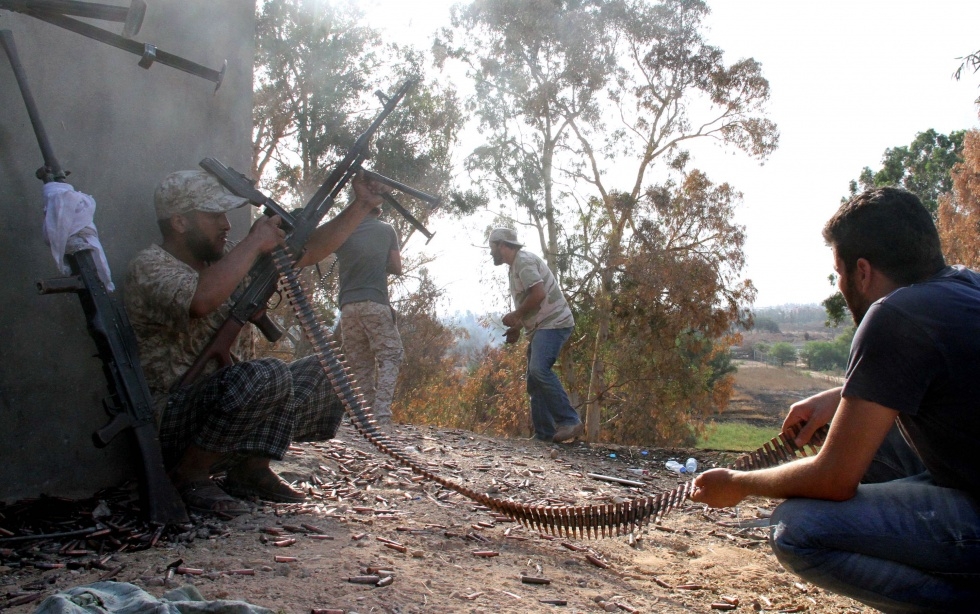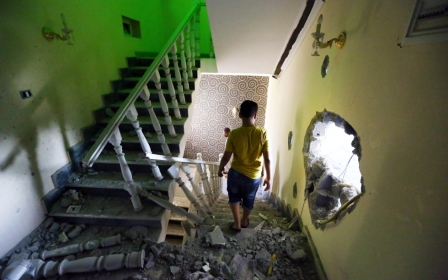Libya's Haftar: Mystery Tripoli airstrikes part of 'international' operation

Airstrikes launched overnight against militia targets in Tripoli were part of a "joint operation" between the international community and the renegade General Haftar, who is seeking to oust powerful militia groups.
Unidentified warplanes launched strikes on four targets in the Libyan capital Tripoli in the early hours of Monday morning.
Libyan government forces denied that they had launched the attack against Libya Dawn, a movement led by rebels from Misrata who aim to expel government-backed fighters from the Zintan Brigades from the capital.
The strikes, described as “massive and accurate” by a fighter from the Zintan Brigades, provoked widespread speculation about the source of the planes, with an unverified photograph circulating online purporting to show a fragment of one of the bombs.
Libya Dawn said that six of their fighters had been killed in the strikes.
“The response will be severe”, they announced on their Facebook page.
In the hours after the attack, a spokesperson for renegade General Haftar’s Operation Dignity declined to comment as to whether their planes had launched the attack.
However, later in the day a senior Operation Dignity source claimed his forces had been responsible for the attack, which targeted Libya Dawn fighters who have been attempting to gain control of strategic sites like Tripoli International Airport.
The source told New York Times journalist Osama al-Fitory that the bombs were dropped by a Sukhoi Su-24 plane, in a “joint operation” between Haftar’s forces and the international community.
US and Egyptian officials both denied any involvement in the attack, though an Egyptian security source told Reuters that Libya had suspended air traffic between the countries for six hours overnight, citing “security reasons.”
Libya’s Parliament has been relocated to Tobruk, a town in the far east of the country near its border with Egypt, in an attempt to avoid the fighting and establish a ceasefire between militias battling it out for control of the capital.
They were unable to agree on forming a new government on Monday morning, with a split between representatives calling for the formation of a new crisis cabinet and those who want the current government to continue its work.
New MEE newsletter: Jerusalem Dispatch
Sign up to get the latest insights and analysis on Israel-Palestine, alongside Turkey Unpacked and other MEE newsletters
Middle East Eye delivers independent and unrivalled coverage and analysis of the Middle East, North Africa and beyond. To learn more about republishing this content and the associated fees, please fill out this form. More about MEE can be found here.




